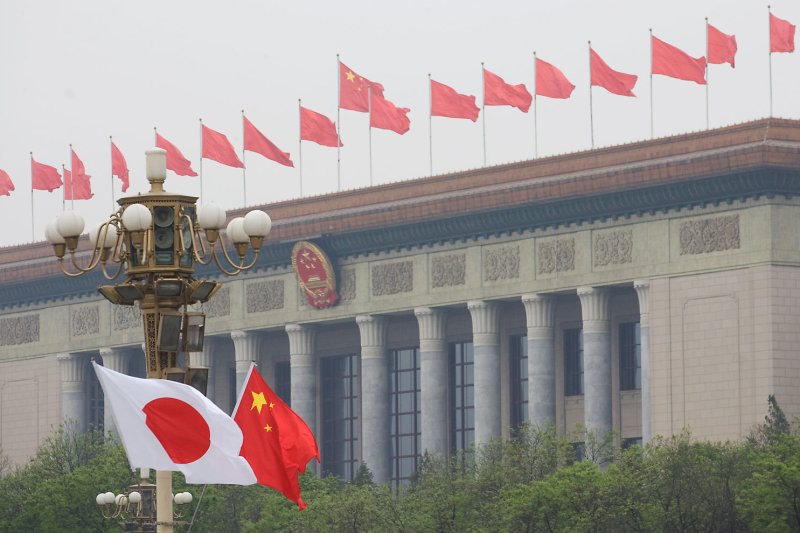Japan is protesting a Chinese decision to release maps of the Senkaku or Diaoyu Islands in the East China Sea. File Photo by Stephen Shaver/UPI |
License Photo
April 27 (UPI) -- Japan has opposed a Chinese decision to release a land survey of the Japanese-administered Senkaku Islands, after Beijing's ministry of natural resources reaffirmed Chinese claims.
Tokyo's Chief Cabinet Secretary Katsunobu Kato said Tuesday that the release of a Chinese topographical map that has Chinese names for the islands' geological formations does not mean the islands belong to China, Jiji Press reported.
"The Senkaku Islands are unquestionably our nation's unique territory, both historically and under international law," Kato said. "Even if China surveys and publishes about the Senkaku Islands and surrounding areas, this doesn't change."
On Monday, the Chinese government posted online high-resolution maps, photos and surveys of the islands, which officially are called the Diaoyutai or Diaoyu Islands in China.
"The report ... supplements and improves the basic geographic data of the Diaoyu Islands and its affiliated islands, and provides important support for the management of the Diaoyu Islands' resources and environmental protection," the natural resources ministry said, according to the South China Morning Post.
The ministry's map labeled the highest peak in the island chain Gaohua Peak. The peak is the highest above sea level at 362 meters. The second-highest in the chain was labeled Shennong Peak, at 320 meters above sea level.
Chinese news agency Xinhua said Tuesday that the data is being provided to "help the international community further understand the indisputable fact that the Diaoyu Island and its affiliated islands are China's inherent territory."
Tensions between Japan and China have risen since China enacted a law in February that permits Beijing's coast guard to use firepower against boats that enter Chinese-claimed waters.
Tokyo said in February that armed Chinese vessels had entered Japanese territorial waters.
The Biden administration recently reaffirmed U.S. commitment to a bilateral treaty with Japan. The defense pact applies to the Senkakus in the event of an attack, U.S. Secretary of Defense Lloyd Austin said in January.















